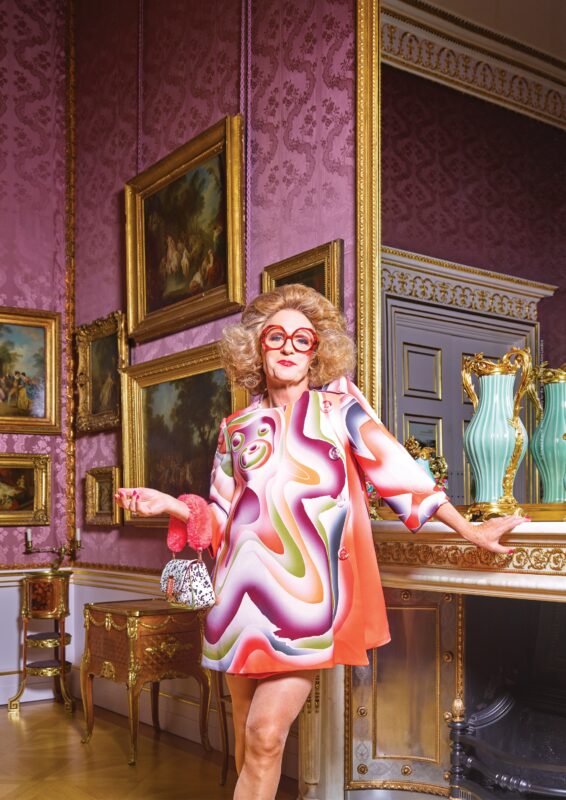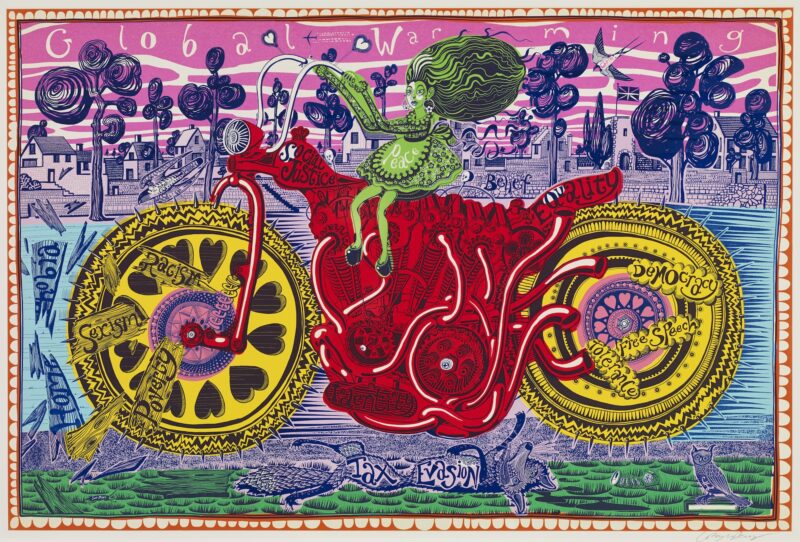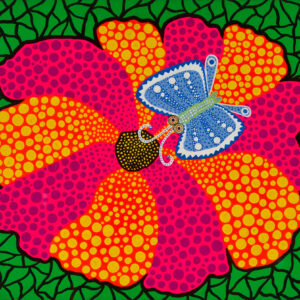Before you look at Grayson Perry’s tapestries, you can already tell there’s a different mood here at Pitzhanger Manor & Gallery. People are actually looking at the works, and talking to each other about it. They’re decoding the symbols, even laughing together? There were a few knowing collective chuckles in the screening room, where a video explains these 2012 tapestries, The Vanity of Small Differences, with Grayson Perry doing the voice-over. Everyone seems genuinely engaged.
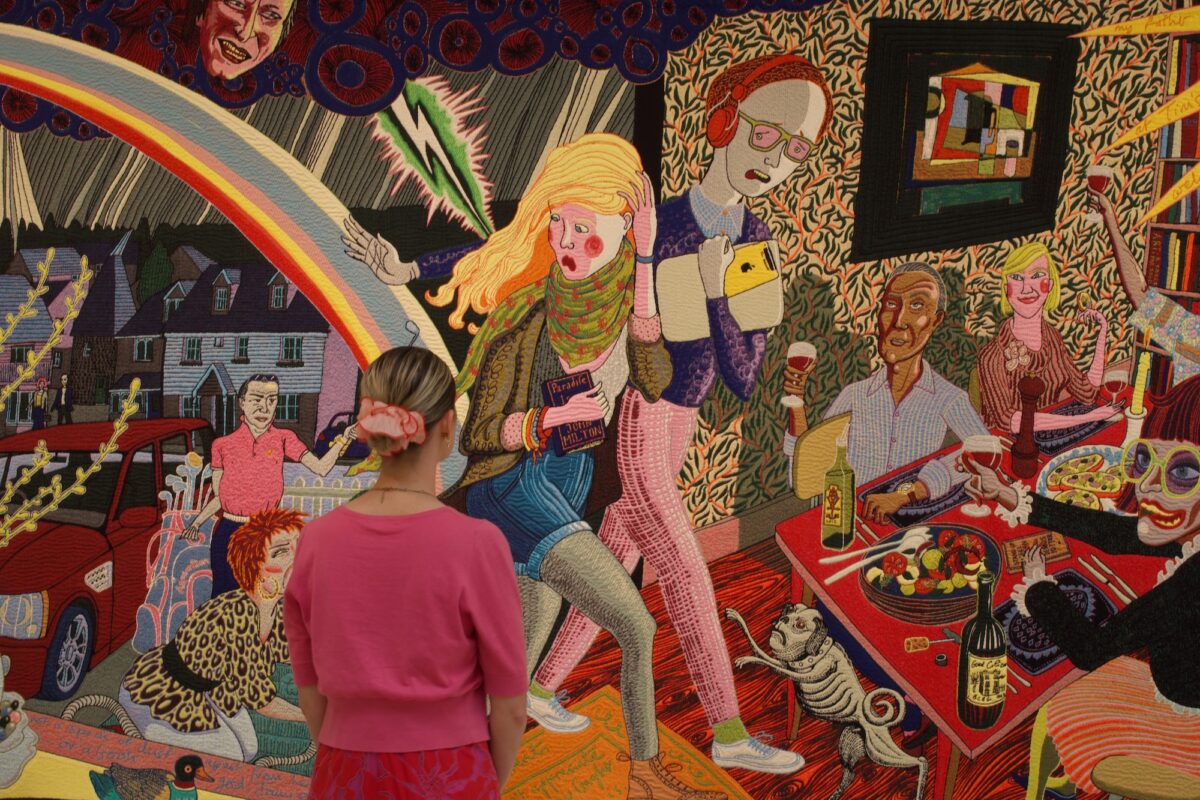
There was one more unusual thing about the show: The gallery labels. Written in plain English by Grayson Perry, the labels simply narrate what is happening in the scene. There’s no flowery language. They don’t offer any interpretation either. It’s as if the exhibition is allergic to any perceived pretentiousness.
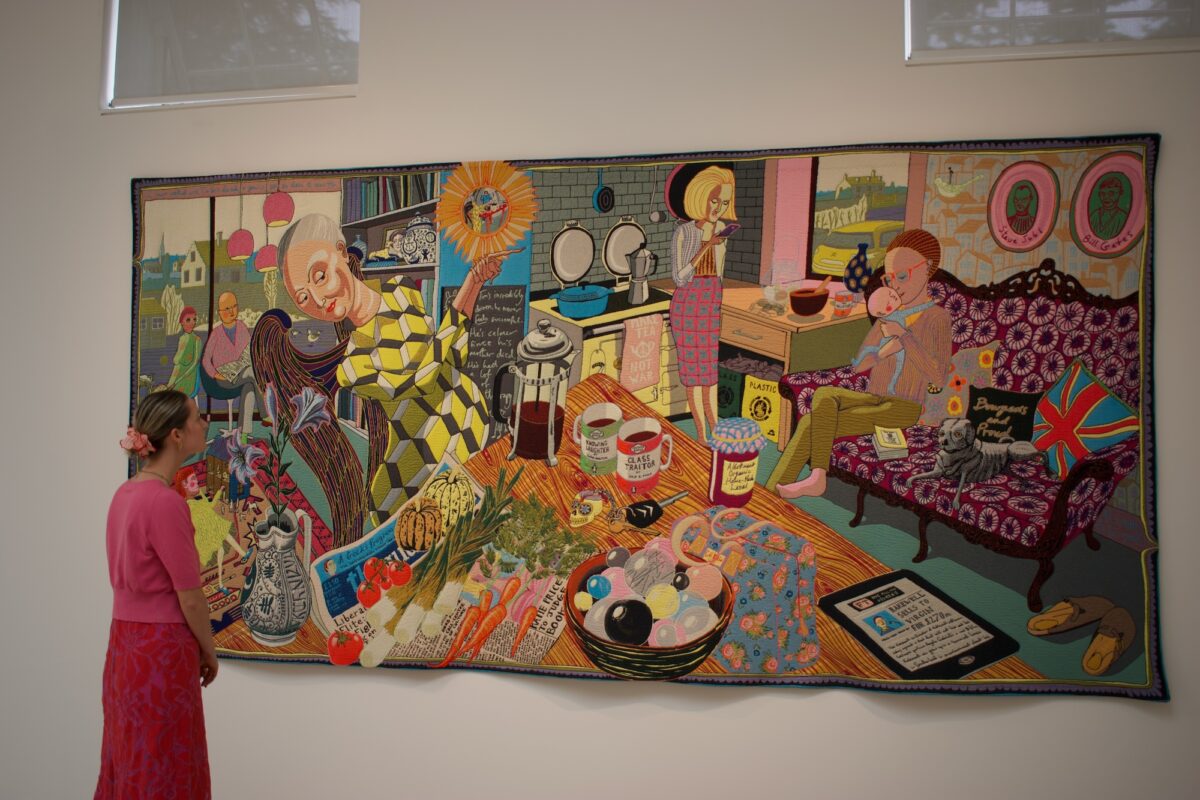
This sensitivity makes sense since The Vanity of Small Differences is an exploration of the British class system, and how this manifests in taste. The six tapestries, very large, tell the fictional story of Tim Rakewell. He’s born working class and moves through all the different class systems –some he’s accepted in, others he’s outcasted from, some he could never access, despite all the wealth he accrued from Big Tech.
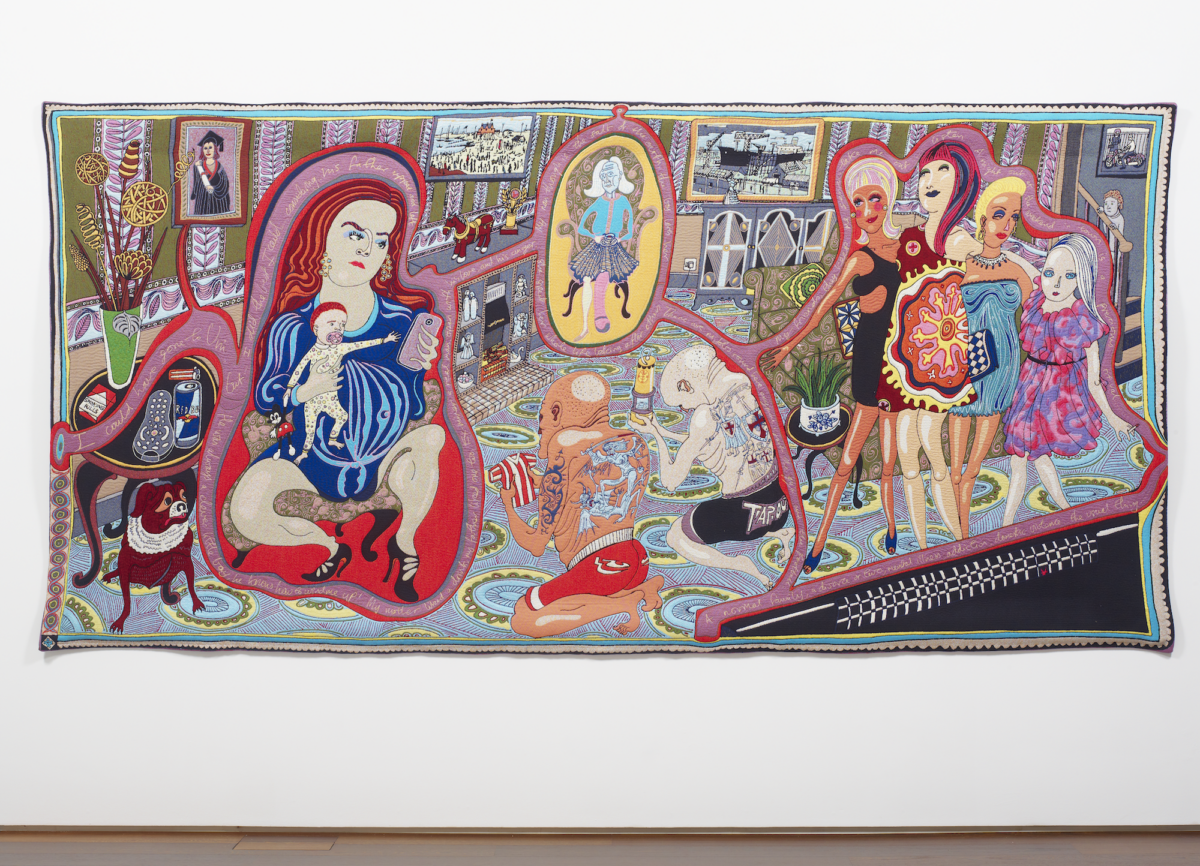
Distinguishing class like this in Britain both offends us and fascinates us. In the 1950s, when aristocrat Nancy Mitford wrote all the trappings of what was ‘U’ and ‘Non-U’ (Upper Class and Not Upper Class), she was reviled by her friends for making explicit what had always been unwritten code. Even across the second half of the 20th Century, when numerous academics and politicians in the 1980s and 1990s declared the ‘death of class’ in Britain, it never materialised.

By the 2010s, class consciousness felt particularly intense and nit-picky in the UK. Only a year after Grayson Perry made these tapestries in 2013, there was BBC’s Great British Class Survey. It got 161,000 responses, making it the largest survey of social class ever conducted in Britain, where all these participants willingly spent 20 minutes filling out a survey on their values, taste and leisure habits. When the results were in, there was an interactive tool called a ‘class calculator’ to see where you’d sit in the system: seven million people – that’s roughly one in five of the British adult population – interacted with the calculator to see where they belonged.
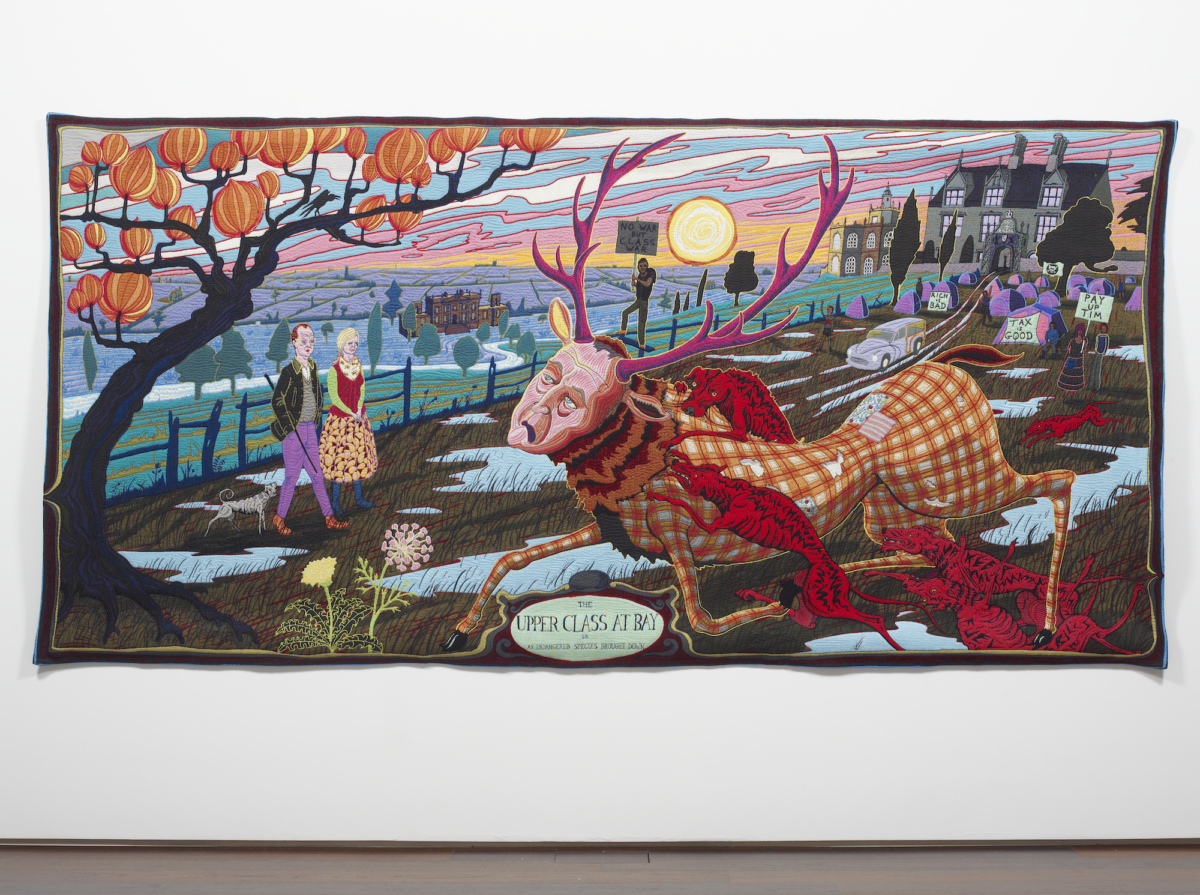
There’s something very 2010s about The Vanity of Small Differences. Instagram was only two years old when it was made, now it’s a teenager at 14 years old. The final piece is called #Lamentation, which feels like a pre-algorithmic fossil (since Instagram’s head Adam Mosseri said in 2022 hashtags don’t increase post reach in the app, it’s no longer really used). There’s a strange sort of irony then that Tim Rakewell’s taste was shaped through his successful career in technology, while today, algorithmic recommendations have become so pervasive that they’re shaping all of our own tastes too.
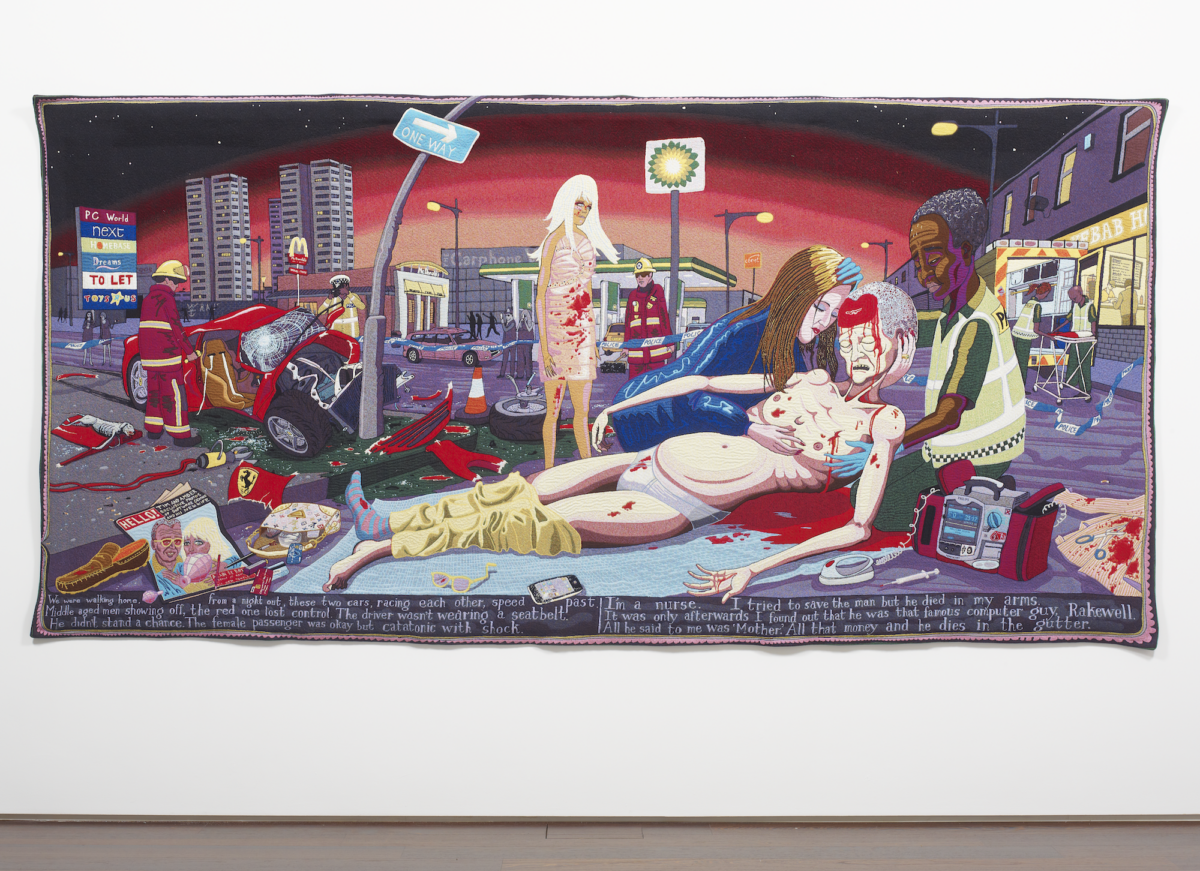
Grayson Perry: The Vanity of Small Differences is on until 8th December 2024 at Pitzhanger Manor & Gallery, London.

